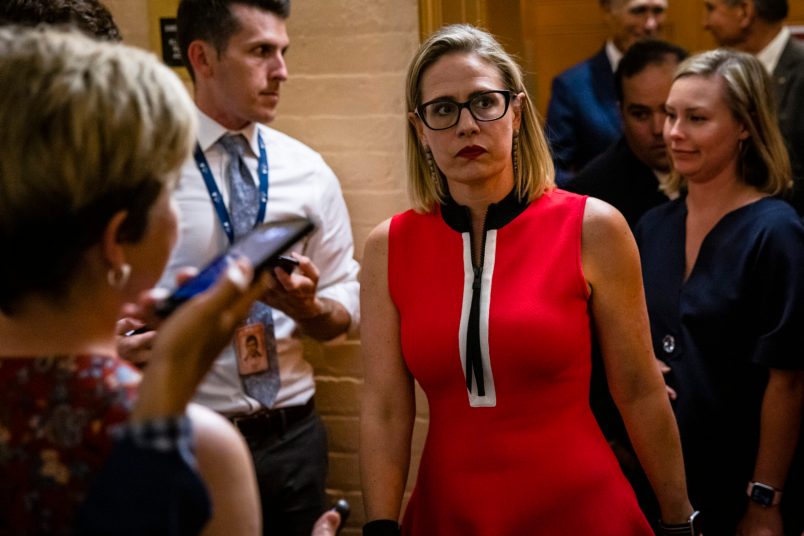The Arizona State University Police Department has asked the Maricopa County Attorney’s Office to prosecute the immigration activists who filmed themselves confronting Sen. Kyrsten Sinema (D-AZ) at the school over her stonewalling of the sweeping reconciliation package, and following her into a bathroom as they did so several weeks ago.
ASU police spokesperson Adam Wolfe alleged in an interview with the Arizona Republic that the four protesters had committed misdemeanors of disorderly conduct and disrupting an educational institution.
The ASU police finished its investigation into the incident this past week, Wolfe told the Arizona Mirror.
The Arizona Republic and the Arizona Mirror noted that the police aren’t recommending criminal charges based on the state’s ban on recording a person in the bathroom. The protesters did not film Sinema inside the stall.
Wolfe told the Arizona Mirror that he would not publicly identify the protesters because his department’s recommendation is “still being processed” by the county attorney’s office, “and if they choose to prosecute I don’t want to interfere with that.”
The referral comes after immigration advocates from Living United for Change in Arizona (LUCHA) attempted to speak to Sinema outside a classroom where she was teaching on October 3. The senator ignored the activists, who were filming the confrontation, on her way to the bathroom as they asked her to support the reconciliation bill and include immigration reform in the legislation. (At this point, it is looking unlikely that immigration will make it into the bill — Senate Parliamentarian Elizabeth MacDonough rejected pro-immigration Democrats’ attempts to include it twice.)
Several of the protesters followed Sinema into the bathroom to keep trying to talk to her while filming.
Sinema released a statement the following day saying the confrontation was “not legitimate protest.”
“It is unacceptable for activist organizations to instruct their members to jeopardize themselves by engaging in unlawful activities such as gaining entry to closed university buildings, disrupting learning environments, and filming students in a restroom,” she said.



